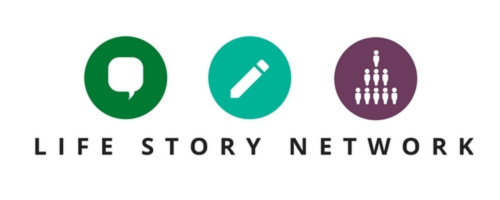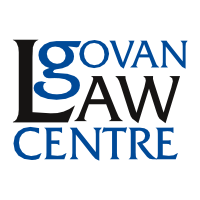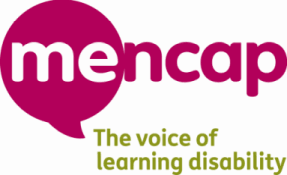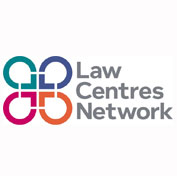Legal Needs in Healthcare Settings
Life Story Network


Law for Dementia Carers
Grant: £100,000
March 26, 2019
The Law for Dementia Carers (L4DC) project aims to work with Dementia United (DU) with the aim "to make Greater Manchester the best place in the world for dementia care" - to embed access to legal support for carers of people with dementia and recognise its contribution to improving both individual and system-wide health outcomes. Aligning and embedding the outcomes of this project within the DU programme as well as the GM wide Commitment to Carers (Right help and support at the right time) will enable us to embed and sustain this approach after the pilot project. The project will embed human rights education and legal support by means of a three tiered approach:
- to co –develop a blended modular legal support training programme for carers, using their lived experience.
- Co-develop and co-deliver a blended training programme for staff utilising expert carers;
- Co-produce guidance for policy developers, educators and commissioning bodies to influence and embed the learning and outcomes.
| Increase Public Understanding | Advance High Quality Thinking | Increase Access to Employment |
| Developing Income Streams | ||
| Implications of Brexit | Legal Needs in Healthcare Settings | Influence the Online Court |
| Develop Robust Evidence Base | ||
| Understand Role of Technology | ||
| Law Reform, Policy and Regulation | ||
| Communications to Disseminate Learning | ||
Govan Law Centre


Virtual Partnership Law Centre
Grant: £49,870
September 5, 2018
GLC will provide legal services for a remote area of Scotland. It will invest in broadband, computers with Skype, camera/microphone, in private confidential areas in offices and secure scanning to safely upload documents. The aim is to make legal services accessible anywhere in Argyll and Bute Council (A&BC) that has a private room and computer with camera connected to broadband. Skype client appointments will be booked in the same way as other clients, with a solicitor ‘meeting’ a Skype client in a local meeting room.
Reach Advocacy will train and support four people in A&BC to become citizen advocates, who will provide local support to Skype clients. Reach Advocacy are a Scottish Qualifications Authority approved training centre who provide support to individuals, families, carers and communities affected by drugs, alcohol and mental health problems.
| Increase Public Understanding | Advance High Quality Thinking | Increase Access to Employment |
| User of Advice Organisations | ||
| Implications of Brexit | Legal Needs in Healthcare Settings | Influence the Online Court |
| Develop Robust Evidence Base | ||
| Understand Role of Technology | ||
| Law Reform, Policy and Regulation | ||
| Communications to Disseminate Learning | ||
Royal Mencap Society


Transforming access to justice
Grant: £40,000
June 20, 2018
Developing a chatbot that will provide basic legal advice on social care issues and so increase the ability of care workers to understand and use the law to support people with learning disabilities and their families.
| Increase Public Understanding | Advance High Quality Thinking | Increase Access to Employment |
| Staff in Voluntary Sector | ||
| Implications of Brexit | Legal Needs in Healthcare Settings | Influence the Online Court |
| Develop Robust Evidence Base | ||
| Understand Role of Technology | ||
| Law Reform, Policy and Regulation | ||
| Communications to Disseminate Learning | ||
Law Centres Network


Scoping and design of a pilot to meet legal need within Social Finance Health and Social Care platforms
Grant: £38,250
June 20, 2018
Supporting a collaboration with Social Finance to develop a sustainable model for integrating work that identifies and resolves unmet legal needs into two of Social Finance service platforms that address health and social care needs.
| Increase Public Understanding | Advance High Quality Thinking | Increase Access to Employment |
| Developing Income Streams | ||
| Implications of Brexit | Legal Needs in Healthcare Settings | Influence the Online Court |
| Develop Robust Evidence Base | ||
| Understand Role of Technology | ||
| Law Reform, Policy and Regulation | ||
| Communications to Disseminate Learning | ||
Ipswich and Suffolk Council for Racial Equality


Health Justice Partnership in Suffolk
Grant: £19,855
November 13, 2017
The project aims to improve understanding of how social prescribing in health settings could increase access to social welfare legal advice in Suffolk and reduce health spend by researching current practice and building a robust business case for local health commissioners to fund local advice services to develop and run an effective model of future delivery.
Currently, social prescribing activities in Suffolk are small scale, sporadic and little is known about their nature or the extent of their impact, which is a challenge for advice services seeking to develop a more cohesive, strategic structure for support. The project will address this by identifying existing activities within the county and, by using a mix of quantitative and qualitative methods, summarise the nature of these activities and the extent to which they are successful in increasing access to social welfare legal advice.
The project will examine the challenges faced by those providing social prescribing activities in the county and summarise perceived gaps and areas for improvement, in addition to potential opportunities, with a view to informing development of a Business Plan. The research will also draw upon best practice from elsewhere in the UK by researching five case studies of social prescribing activities that are considered to be successful models and use them to design a suitable Suffolk model.
| Increase Public Understanding | Advance High Quality Thinking | Increase Access to Employment |
| Developing Income Streams | ||
| Implications of Brexit | Legal Needs in Healthcare Settings | Influence the Online Court |
| Develop Robust Evidence Base | ||
| Understand Role of Technology | ||
| Law Reform, Policy and Regulation | ||
| Communications to Disseminate Learning | ||
British Institute of Human Rights


An online educational tool: human rights in health and care
Grant: £100,000
November 13, 2017
This project builds on key points from face-to-face education to develop an online educational tool to help patient advocates, advisers, and health/care professionals to use human rights to support patients, securing their rights and protecting them from neglect or abuse and unfair treatment. Whilst people can use the tool to self-advocate, the target will be the many organisations/agencies charged with supporting patients, particularly those with mental health/capacity issues. This includes people living with dementia, autism and/or learning disabilities. Our interactive tool will enable patients/advocates/health workers to identify whether a person’s rights may be at issue and then take them through a series of practical steps and tools to resolve this pre-litigation (e.g. sample letters and worked examples).
| Increase Public Understanding | Advance High Quality Thinking | Increase Access to Employment |
| Staff in Voluntary Sector | ||
| Implications of Brexit | Legal Needs in Healthcare Settings | Influence the Online Court |
| Develop Robust Evidence Base | ||
| Understand Role of Technology | ||
| Law Reform, Policy and Regulation | ||
| Communications to Disseminate Learning | ||
UCL Centre for Access to Justice


The Value of Health-Justice Partnerships – research on outcomes, implementation
Grant: £7,400
September 27, 2017
| Increase Public Understanding | Advance High Quality Thinking | Increase Access to Employment |
| Developing Income Streams | ||
| Implications of Brexit | Legal Needs in Healthcare Settings | Influence the Online Court |
| Develop Robust Evidence Base | ||
| Understand Role of Technology | ||
| Law Reform, Policy and Regulation | ||
| Communications to Disseminate Learning | ||
Law Centres Network


Review of Social Finance Health and Social Care platforms
Grant: £10,000
August 24, 2017
| Increase Public Understanding | Advance High Quality Thinking | Increase Access to Employment |
| Developing Income Streams | ||
| Implications of Brexit | Legal Needs in Healthcare Settings | Influence the Online Court |
| Develop Robust Evidence Base | ||
| Understand Role of Technology | ||
| Law Reform, Policy and Regulation | ||
| Communications to Disseminate Learning | ||
Select by Objective
Select by Theme
Select by Tool
Select by Grantee
Grantees
Select by Date
Grants Archive
Search
